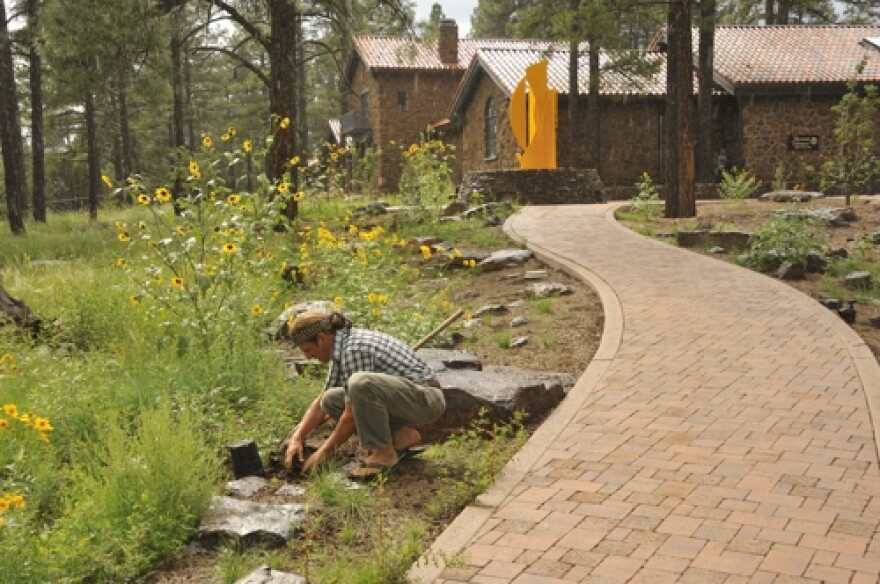Reconciliation ecology is a way to live in places we have already touched. It’s a strategy that acknowledges human presence, yet enhances the environment and improves wildlife habitat.
You can see it in action at the Museum of Northern Arizona in Flagstaff. In a recent large outdoor construction project, the museum opted to restore the natural forest and grassland habitat and forego traditional irrigated landscaping. The natural array of native plants has helped increase the diversity of insects and birds -- and the lush growth is beautiful too.
This method offers a cost-effective alternative to "weed cloth and gravel" xeriscape landscaping. That system typically keeps plants on long-term “life support” instead of transitioning them to live only on rainfall.
The approach can help save precious resources too. In Flagstaff, 35 to 40 percent of summertime water use currently goes to outdoor uses like landscape irrigation. And moving that water around the system accounts for about 30 percent of the town's electricity use.
And it doesn’t just reduce water and power use. If done right, the strategy also breaks down the divide between wilderness and the human-built environment, bringing us all closer to natural, healthier landscapes on a daily basis.
Along with preservation and restoration, reconciliation ecology can present a "win-win" situation for both people and wild creatures.








